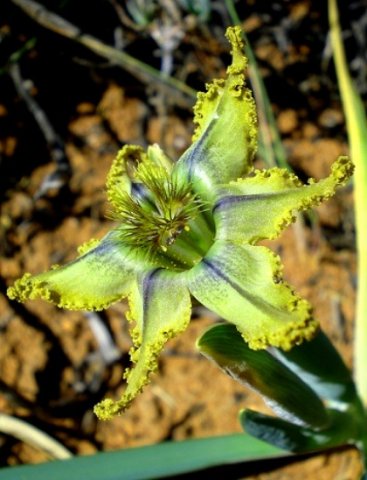Ferraria variabilis

Author: Ivan Lätti
Photographer: Judd Kirkel Welwitch
Ferraria variabilis is a cormous perennial reaching heights around 20 cm. The disc-shaped corm accumulates annually in a chain-shape as new corms are produced at the base of the flowering stem and the old corms remain, attached under the new one. The corms have no papery or fibrous coats.
The flowers have tepals that form a shallow cup and tips that spread widely with eye-catching crinkling of their margins. Flower colour reflects the variability of the specific epithet: yellow with brown speckles and bands, pale yellow with dark blue bands and speckling, sometimes more. The filaments of the stamens are united in a central column. The style branches are deeply fringed, concealing the anthers. The anthers have two lobes positioned in a fork-shape. Flowering happens from late winter to spring.
The distribution lies from Namibia, the Northern Cape, North West and the Western Cape to Worcester and the Little Karoo.
The habitat is Nama Karoo and succulent Karoo on sandy and shale flats and rocky slopes. The species is not considered to be threatened in its habitat early in the twenty first century (Manning, 2007; www.pacificbulbsociety.org; http://redlist.sanbi.org).

